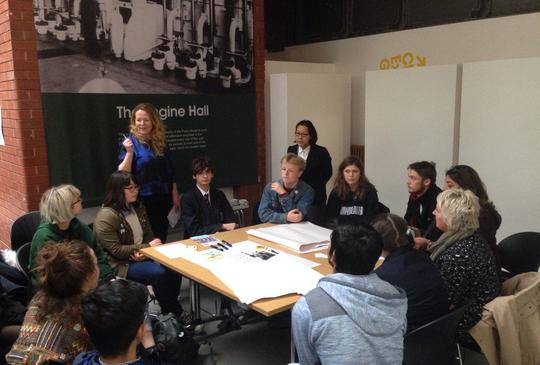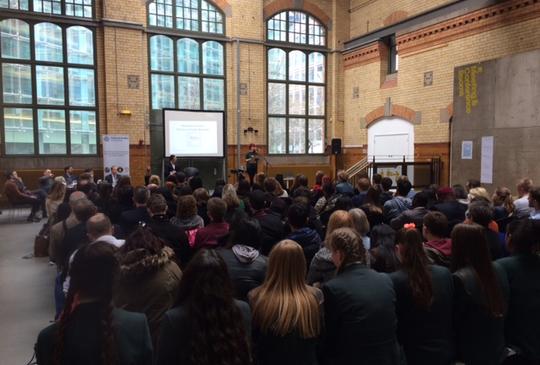
A Young Citizens’ Assembly
On 25th April, the People's History Museum played host to a day-long event entitled Democratic Devolution and the Future of GM: A Young Citizens’ Assembly. Led by the Politics Project, the Assembly brought together around a hundred young people (aged 14-21) to begin a discussion of what young citizens want from the devolution process.
It’s no surprise to find that devolution has, thus far, been a process dominated by white, male and “rather mature” politicians. Given Osborne's commitment that the process should promote a stronger democracy, it’s fair to say that the devolution revolution has chronically underperformed when it comes to engaging with voices from outside the usual ‘in’ crowd.

Initiatives such as the ‘Young Citizens’ Assembly’ are a crucial part of addressing this imbalance. If the starting point of democracy is that the people should rule themselves, it's crucial that we create processes through which all citizens can have a stake in the direction of our society. Given that around a quarter of the UK population is under the age of 21, and that young people are often one of the most marginalised demographics in politics, it's all the more important that we design processes to include young people in the governing of our society.
Following a series of working groups focused on issues from education through to participation, the participants fed-back to the packed Engine Hall of the PHM. From concerns with the “sausage machine” of Further Education through to opposition to the Junior Doctors Contract, one participant’s comment served well to summarise the atmosphere of the event:
“Young people should represent young people - young people can get things done, we can and we will”.
Indeed - let’s hope they are given the chance.
The event on the 25th April was a first step in the process of constituting the Young Citizens’ Assembly, and an initial report is due to be released towards the end of this month. If you want to find out more about the Young Citizens’ Assembly, or to find a copy of the report when it’s published, visit http://www.symmetrycreative.org/demodevo
Contributor Profile
Bert joined the Urban Institute at the University of Sheffield in 2016, and contributes as a scholar-activist to the Jam and Justice project, part of the ESRC Urban Transformations Programme. Key areas of the project include: collaboratively establishing 10 action research projects as part of an Action Research Collective (ARC); producing alternative visions for Greater Manchester; assessing the viability of co-production in challenging existing governance forms; and understanding the scalability of the commons.


